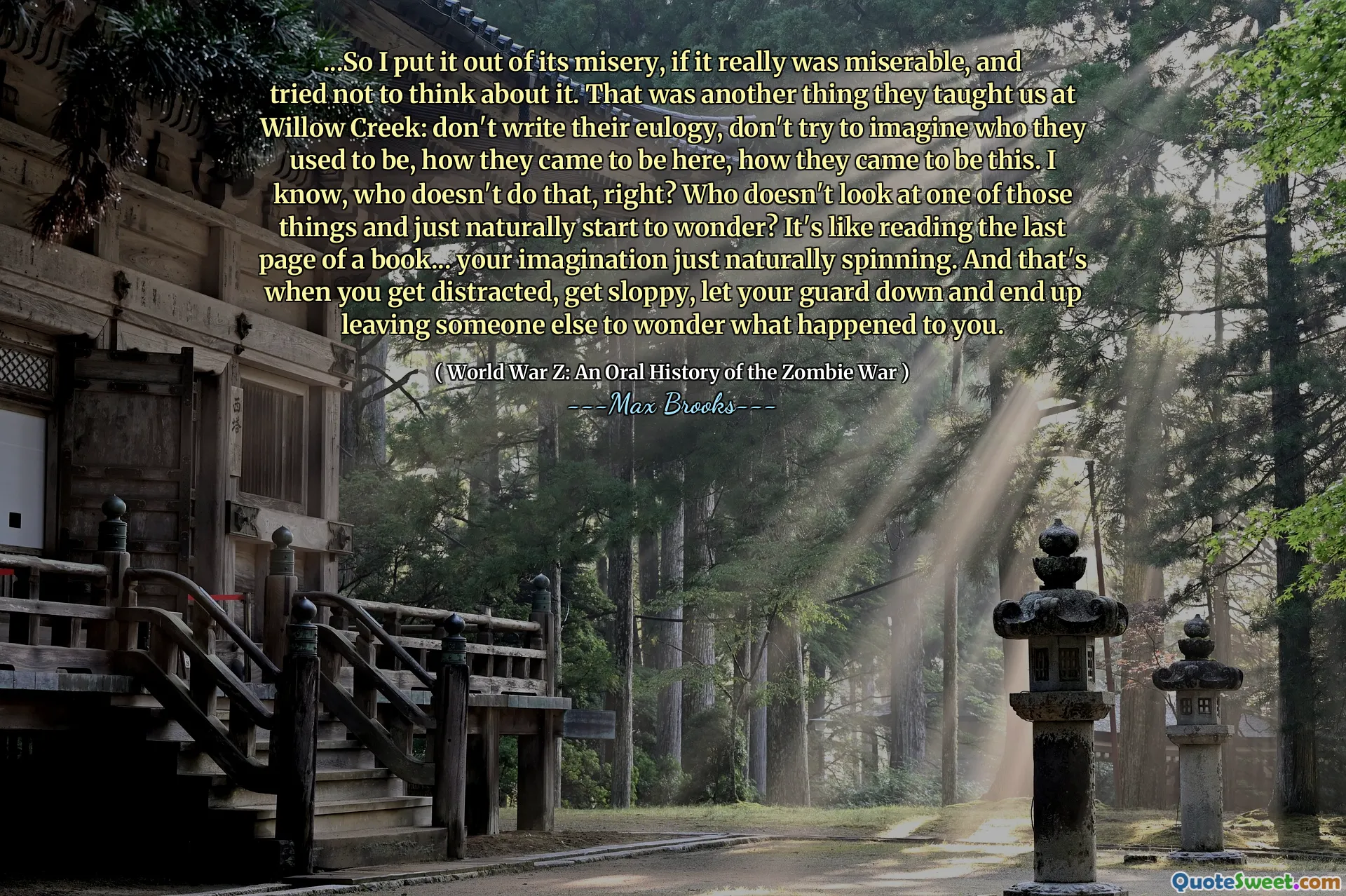
...So I put it out of its misery, if it really was miserable, and tried not to think about it. That was another thing they taught us at Willow Creek: don't write their eulogy, don't try to imagine who they used to be, how they came to be here, how they came to be this. I know, who doesn't do that, right? Who doesn't look at one of those things and just naturally start to wonder? It's like reading the last page of a book... your imagination just naturally spinning. And that's when you get distracted, get sloppy, let your guard down and end up leaving someone else to wonder what happened to you.
The quote reflects a complex emotional response to dealing with death in a world overrun by zombies. The speaker grapples with the instinct to contemplate the lives of the deceased and their journey to this inevitable end. They highlight a critical lesson learned at Willow Creek: to avoid dwelling on the past identity of the deceased, focusing instead on the present moment and the necessity of survival amidst chaos.
This idea emphasizes the dangers of letting one's guard down when caught in the cycle of grief and memory. Instead of indulging in nostalgia or sorrow, the speaker recognizes that doing so can lead to complacency, which may have dire consequences in their perilous reality. The tension between human curiosity and the harsh realities of survival is poignantly captured in this internal conflict.











